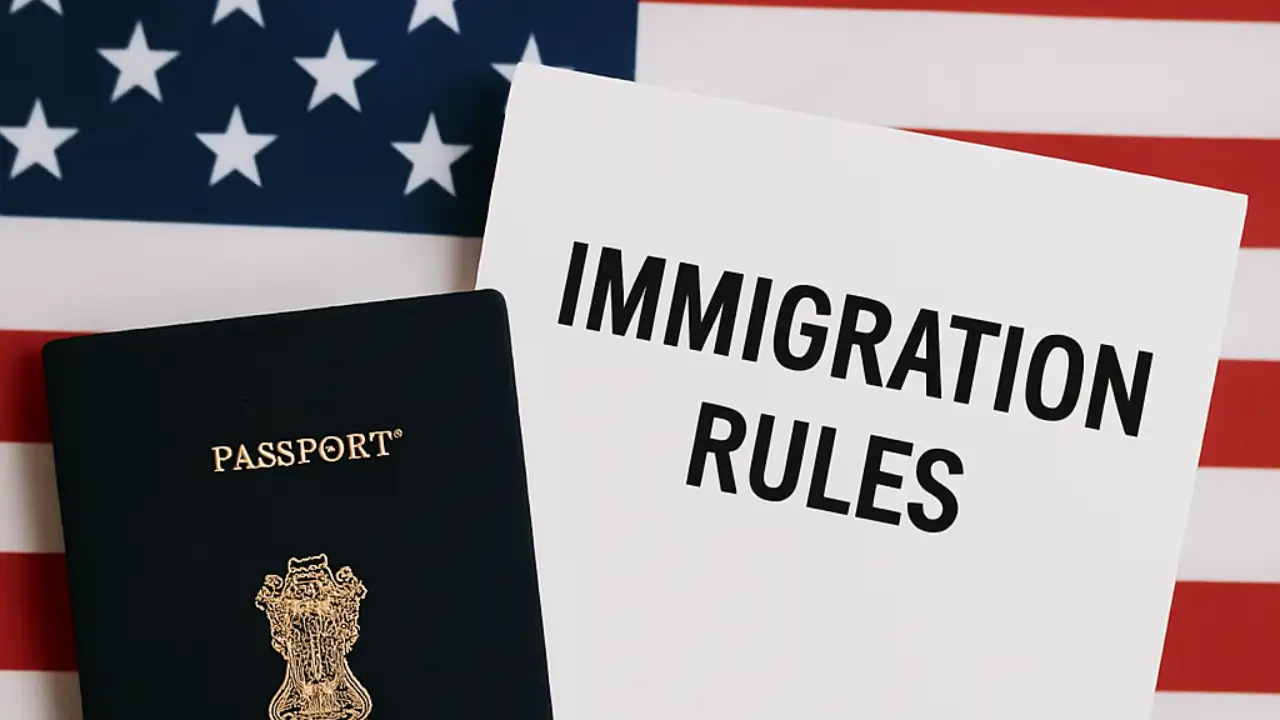The new US immigration ID mandate is causing unease on campuses nationwide—from the lecture halls of New York to the research labs of Seattle—particularly among African F‑1 visa students worried about routine checks. Drawing on years of experience in advising African professionals, Empire Fly Law breaks down the reason this rule has resurfaced, what it requires from you day to day, and shares practical steps to stay compliant—so you can concentrate on your academic journey and career ambitions in the United States.
1. Understanding the New US Immigration ID Rule for F-1 Visa Holders
The US immigration ID rule, effective April 11, 2025, revives provisions from the Alien Registration Act of 1940. Under this directive, all non‑citizens, including those on an F-1 visa, must carry proof of legal status at all times. Failure to comply can result in fines up to $998 per day, imprisonment, or both.
-
Legal Basis: Alien Registration Act of 1940
-
Name of Rule: Alien Registration Requirement (ARR)
-
Effective Date: April 11, 2025
For full details, consult the Department of Homeland Security (DHS): https://www.dhs.gov/.
2. Who Must Comply with the ARR?
More so, the rule applies to a broad spectrum of non‑citizens:
-
F-1 visa students over age 14 staying beyond 30 days
-
J-1 exchange visitors
-
H-1B specialty workers
-
H-2B temporary non‑agricultural workers
-
All other non‑immigrant visa holders
African F-1 visa students should be particularly attentive, as most are enrolled for multi‑year programs and frequently travel off campus.
3. Key Requirements for F-1 Visa Holders
Under the new US immigration ID rule, F-1 visa holders must:
-
Register via Form G-325R within 30 days of arrival
-
Carry Original Documents at all times:
-
Valid passport
-
F-1 visa stamp
-
Form I‑20 signed by your Designated School Official (DSO)
-
School ID or driver’s license
-
-
Report Address Changes to U.S. Immigration and Customs Enforcement (ICE) within 10 days
-
Re‑register Upon Turning 14 and provide fingerprints
For registration details, visit ICE’s Alien Registration page: https://www.ice.gov/ARR.
4. Why African F-1 Visa Students Are Concerned
Many African professionals studying on an F-1 visa already juggle cultural adjustment, academic expectations, and work‑study regulations. This new rule adds:
-
Heightened Scrutiny: Routine ID checks—on campus shuttles or during social outings—may increase anxiety.
-
Risk of Unintentional Non‑Compliance: Misplacing your I‑20 or forgetting to update your address could trigger penalties.
-
Impact on Future Goals: A record of violations can affect Optional Practical Training (OPT) eligibility or change‑of‑status petitions.
Nevertheless, understanding your rights and preparing proactively will mitigate these risks.
5. Step‑by‑Step Compliance Checklist
| Step | Action Required | Deadline |
|---|---|---|
| Registration | Submit Form G-325R online | Within 30 days of U.S. entry |
| ID Carrying | Keep passport, I‑20, visa stamp, and a school/driver’s license on you | At all times |
| Address Update | Notify ICE of any change via SEVIS | Within 10 days of move |
| Age‑Related Re‑Registration | Re-submit Form G-325R and fingerprints upon turning 14 | Within 30 days after birthday |
| Document Security | Store digital copies in a secure cloud and physical copies in a safe place | Ongoing |
6. Practical Tips for African F-1 Visa Students
-
Digital Backups: Scan your I‑20, passport, and visa. Use encrypted cloud storage like Google Drive with two‑factor authentication.
-
Secondary ID: Carry your university ID or state‑issued driver’s license as supplemental proof.
-
Organize Your Wallet: Use a dedicated ID holder to prevent loss or damage.
-
Know Your Rights: If an officer requests retention of your documents, politely ask for their name, badge number, and agency.
-
Emergency Contacts: Save your embassy or consulate’s 24/7 hotline—e.g., Nigerian Embassy: https://usaembassy.gov/nigeria, South Africa: https://za.usembassy.gov.
7. Understanding Enforcement and Your Rights
While enforcement will ramp up, you are entitled to:
-
Legal Representation: Request an attorney if detention seems imminent.
-
Written Explanation: Insist on a record of any confiscation, including officer details.
-
Non‑Discrimination: You cannot be targeted solely based on race or nationality.
For an overview of immigrant rights, see the American Immigration Lawyers Association: https://www.aila.org/.
8. How to Register and Update Your Information
Registration (Form G‑325R)
-
Create an ICE Secure Portal account.
-
Complete the G‑325R biographical form.
-
Upload a clear passport‑style photo and digital copies of your F-1 documents.
-
Submit and log the confirmation for your records.
Address Changes
-
Log into the ICE Secure Portal
-
Update your SEVIS address field
-
Print the confirmation receipt
For portal access, visit: https://ice.gov/secure-portal.
9. Impact on Optional Practical Training (OPT) and Future Status Changes
More so, compliance with the ARR is critical when applying for:
-
OPT Extensions: Any violation can delay your 12‑month OPT approval.
-
STEM OPT: Even a single failure to carry proper ID may jeopardize the 24‑month STEM extension.
-
Change of Status: Applying for H-1B or other statuses requires a spotless compliance record.
Maintain an unblemished record to ensure smooth transitions.
10. University and Community Support Resources
Many universities have created support systems:
-
International Student Offices: Workshops on the new ARR requirements—check your school’s website.
-
Peer Mentorship: Connect with senior African students who have navigated similar rules.
-
Legal Clinics: Free or low‑cost consultations through campus law schools.
For example, Texas A&M’s International Student Office: https://international.tamu.edu.
11. Frequently Asked Questions (FAQs)
Q: Must I carry my original passport at all times?
A: Yes—carry your original passport and visa stamp; digital copies only supplement.
Q: What if I lose my I‑20?
A: Contact your DSO immediately and request a replacement I‑20 in SEVIS.
Q: Can I use a student ID instead of my passport?
A: No—student IDs are supplemental. You must carry your passport, visa, and I‑20.
Q: Will digital documents suffice during an ID check?
A: No—digital backups are for emergencies. Only originals satisfy legal requirements.
Q: What happens if my documents are confiscated?
A: Politely request a written receipt with officer details and contact your university’s international office.
12. Preparing for Routine and Unscheduled Checks
-
Routine Situations: On‑campus shuttles, library check‑ins, and work assignments.
-
Unscheduled Checks: Random spot checks by ICE or local law enforcement.
Always stay calm, comply politely, and document the interaction afterward.
Conclusion
The new US immigration ID rule marks a significant change in daily life for African F-1 visa holders. But with organized preparation, clear understanding of your rights, and regular use of government resources—such as the DHS (https://www.dhs.gov/) and ICE Secure Portal (https://ice.gov/secure-portal)— you can remain compliant without fear. Stay vigilant, keep your documents secure, and continue to focus on your academic and professional journey in the United States.
For further clarity and professional guidance, contact Empire Fly Law; your trusted immigration law firm.




